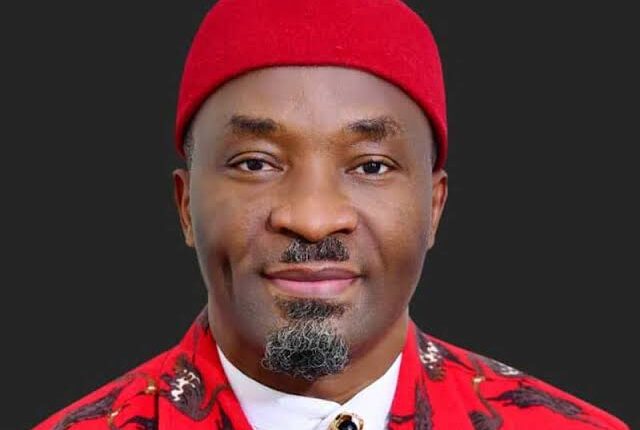Online Harms Bill: Kalu Backs Safer Digital Space, Warns of Gendered Abuse and Misinformation Threat
The Deputy Speaker of the House of Representatives and Chairman, House Committee on Constitution Review, Rt. Hon. Benjamin Kalu, CFR, has thrown his weight behind efforts to tackle online harms in Nigeria, describing the move as critical to protecting the dignity and future of Nigerians in the digital age.
Speaking at the Stakeholders Workshop on the Online Harms Protection Bill held in Abuja, Kalu commended the organizers — the National Information Technology Development Agency (NITDA) and Advocacy for Policy and Innovation (API) — for their commitment to making Nigeria’s digital space safer, inclusive, and more accountable.
“The journey we embark on today is not just about legislation or policy; it is about people, it is about dignity, it is about the future of our nation,” Kalu said, addressing a gathering of government officials, civil society leaders, tech platforms, and digital rights advocates.
Describing the Nigerian digital experience as “a story of promise and pain,” Kalu highlighted the immense benefits of internet access — especially for youth and women — but noted that these gains have come with deep inequalities and growing threats. Citing the 2024 State of Online Harms in Nigeria report by Gatefield Nigeria, he pointed to the staggering gender disparity in online safety and access.
“While one or three million Nigerians are now online — a remarkable leap indeed — our women remain up to 43% less likely to benefit from this digital revolution,” Kalu said. “Of those who do, their experiences are often marred by abuse. A shocking 58% of online abuse cases in Nigeria are suffered by women, including cyberbullying, hate speech, AI-generated harassment, revenge pornography, scams, and more.”
The Deputy Speaker further criticized the limited response of major platforms like X (formerly Twitter) and Facebook in addressing complaints about harmful content. “Only 24% of Nigerians who report such abuses see their complaints taken seriously. Many, especially women, face silence or even secondary victimization,” he said.
Kalu also expressed concern over the widespread threat of fake news and misinformation in Nigeria’s online ecosystem, noting that 99% of Nigerians see fake news as the dominant trend online, while 95% are deeply concerned about misinformation.
“Misinformation is not just a distraction. It is an existential threat to our democratic process,” he warned, revealing that he too had been a victim of online harms.
The workshop is part of ongoing efforts to shape a legislative framework that addresses online abuse, misinformation, and digital inequality, while safeguarding freedom of expression. The proposed Online Harms Protection Bill seeks to strike a balance between security and rights in Nigeria’s evolving digital landscape.


